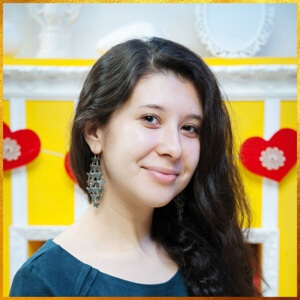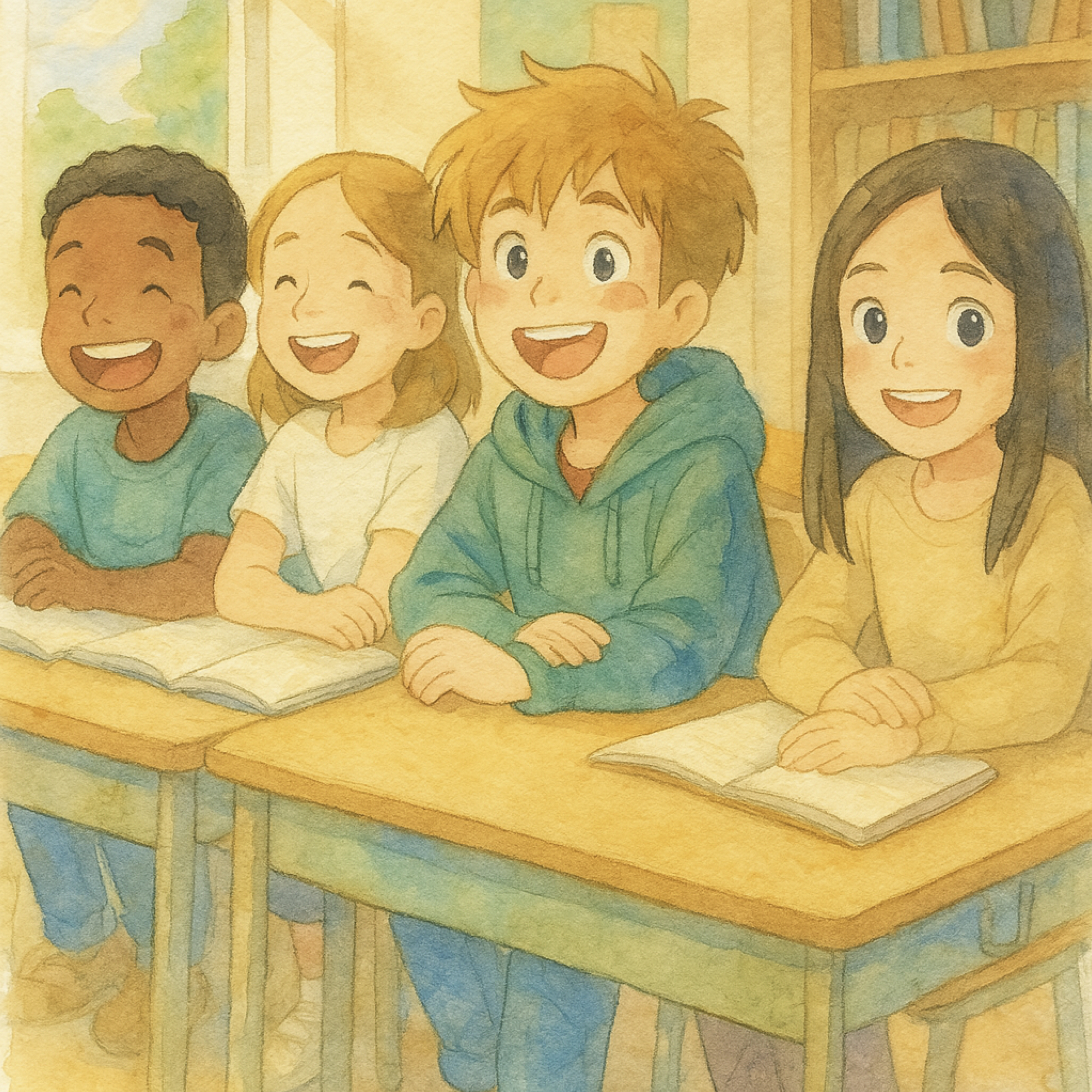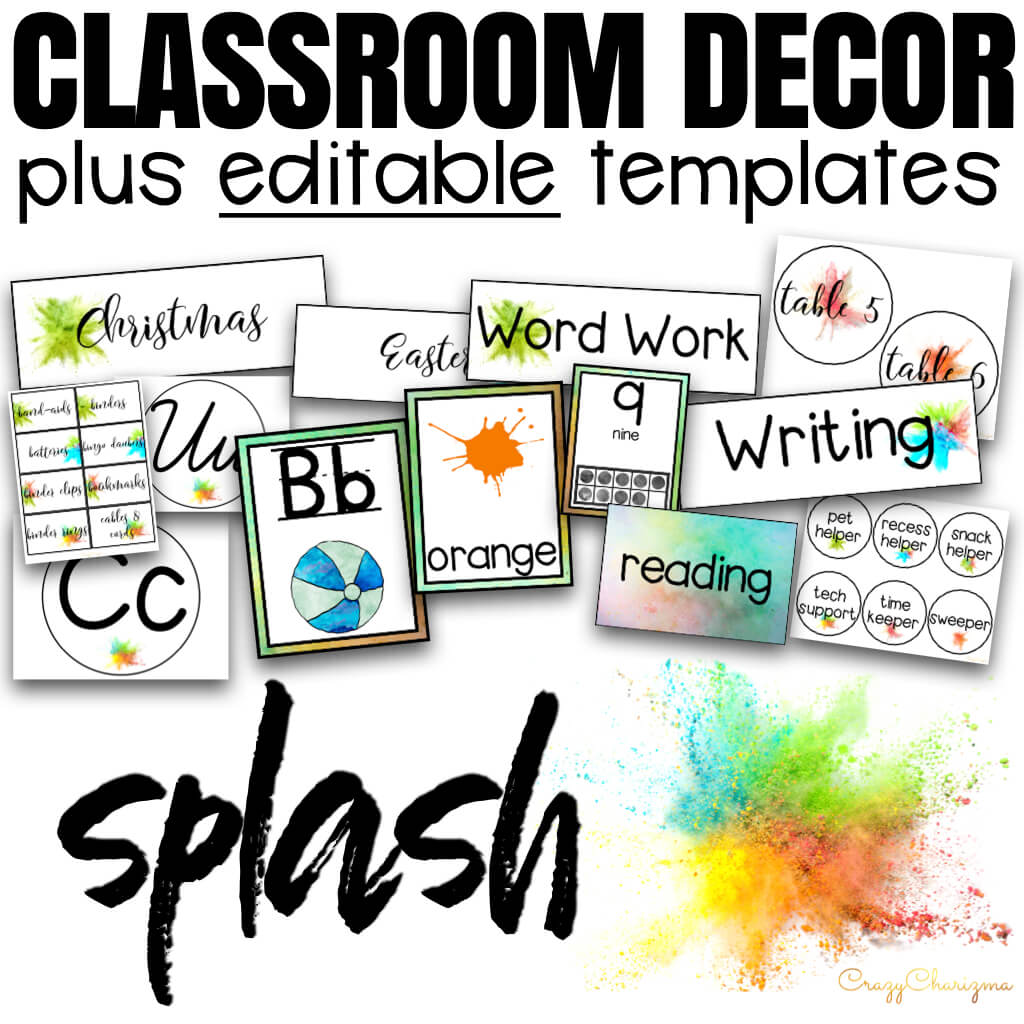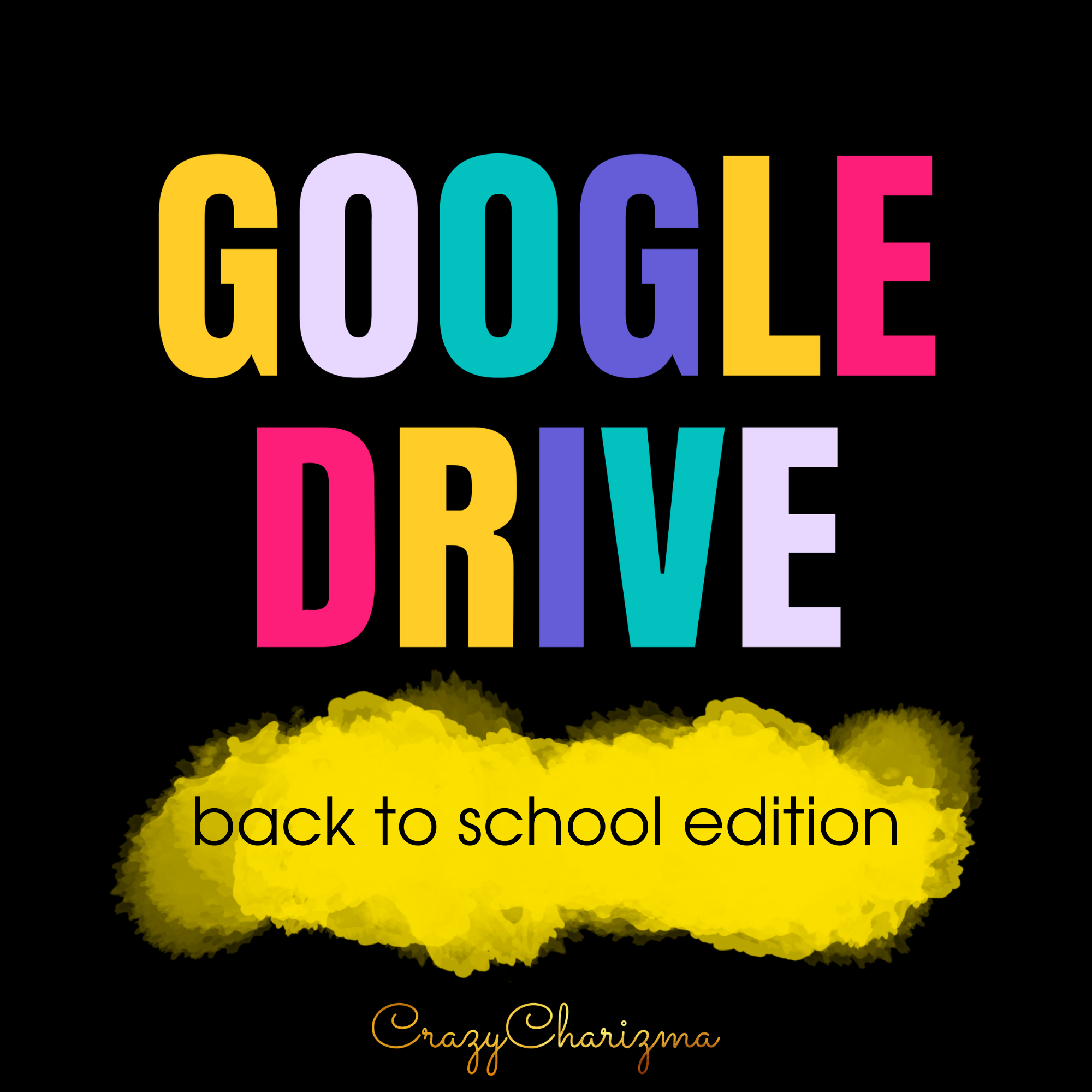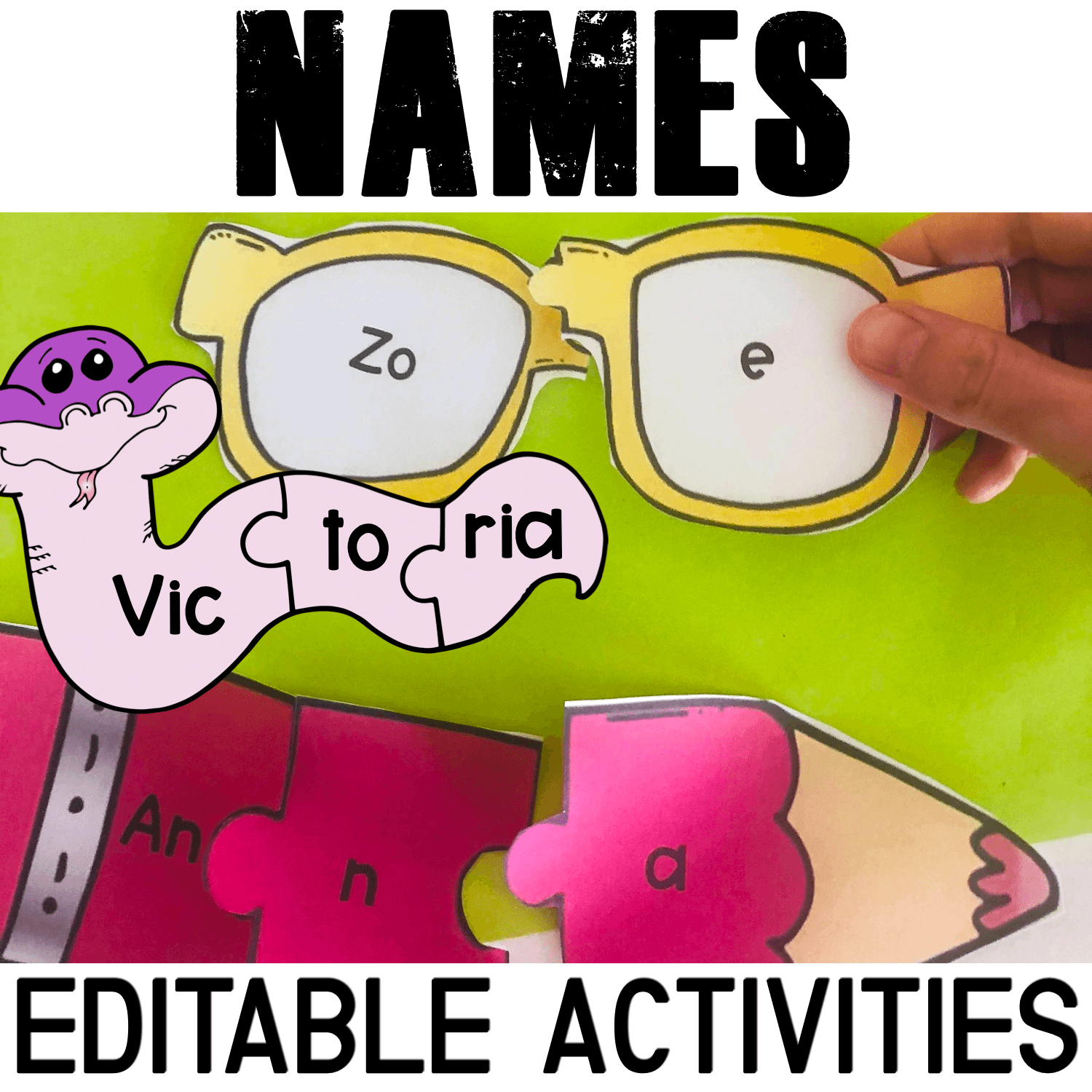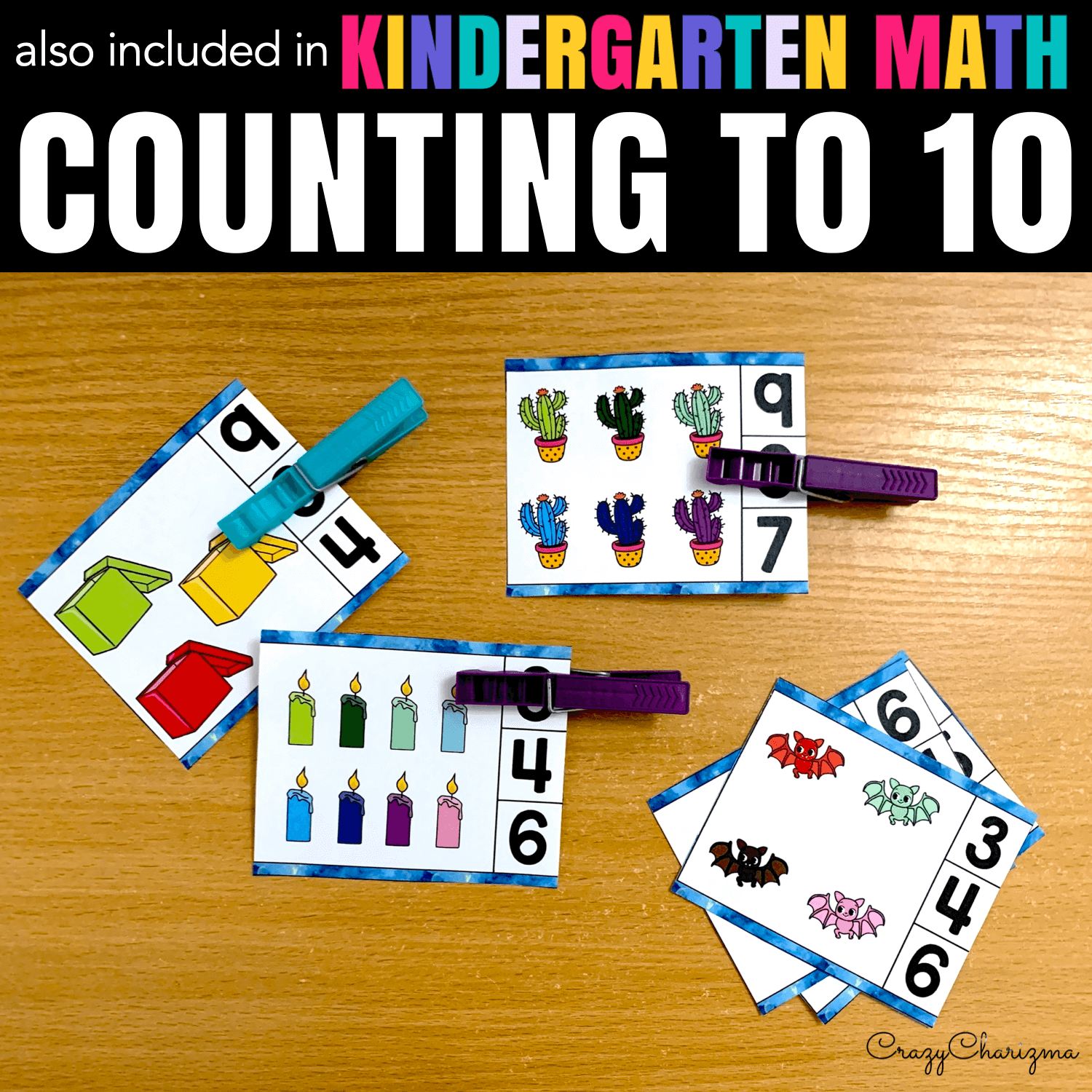The first week of kindergarten can feel like a lot — new routines, tiny faces, and a whole lot of “Where do I even start?”
This post walks you through a simple, flexible plan for your first week. You’ll find ready-to-use printables, a daily schedule that actually works, and ideas that keep your students smiling while you stay sane.
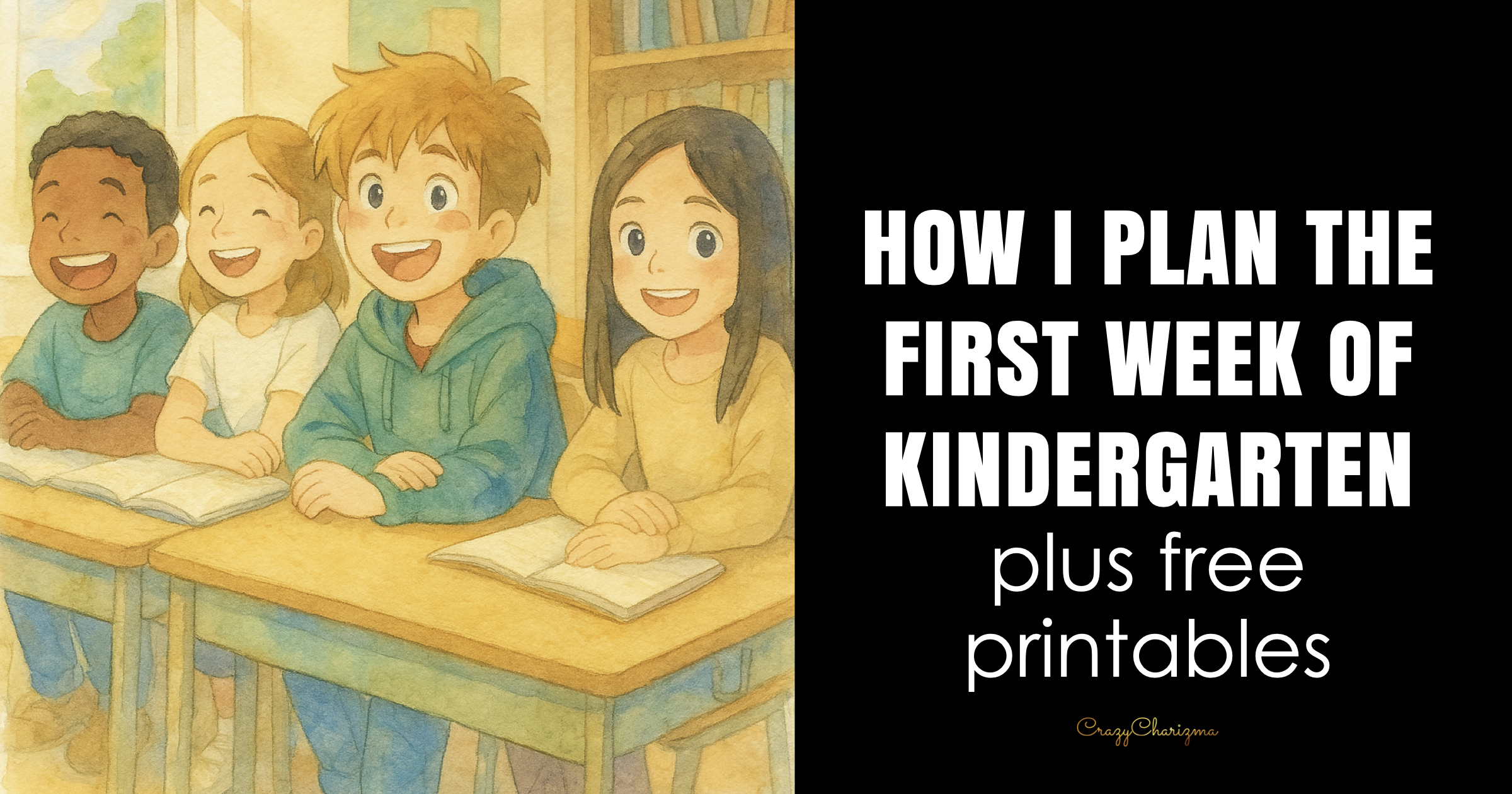
Create a Simple, Flexible Daily Schedule
The first week of kindergarten isn’t about packing in academics — it’s about building structure, trust, and calm. And that starts with your daily rhythm.
Your students are learning everything for the first time — how to walk in, where to sit, how to use glue, how to wait their turn. The schedule isn’t the goal; it’s the container that lets you teach how school works.
Think in short, soft blocks:
☀️ Arrival → ✏️ Morning activity → 🧺 Circle time → 🧠 Centers → 📖 Read-aloud → 🎒 Pack-up
Want visual schedule cards to help anchor your daily flow? My editable schedule cards are included in the SPLASH Classroom Decor Bundle — which is part of the Google Drive Folder: Back to School Edition.
What to Actually Teach the First Week of Kindergarten
This week is all about showing students how to “do school.” You’re not behind if you haven’t taught a single letter yet. You’re building the foundation that everything else will stand on.
Focus on routines, relationships, and confidence-building tasks. Walk through everything — how to line up, how to ask for help, how to get to the rug and back. Give directions slowly. Show what you mean. Let them practice it. And then do it again tomorrow.
Here’s a simple outline to help:
🟠 Day 1: Practice basic routines (how to come in, sit on the rug, walk in line). Let students explore supplies. Keep it short, slow, and warm. End the day with a favorite read-aloud.
Need ideas? Check out my favorite first day of school books for K–2 teachers.
🟠 Day 2–3: Add a bit more structure — a name-writing activity, a short morning meeting, a routine like “This or That” questions for brain breaks. Use editable name tracing activities for quiet practice and confidence building.
Want the “This or That” questions I use? You can grab them as a freebie here.
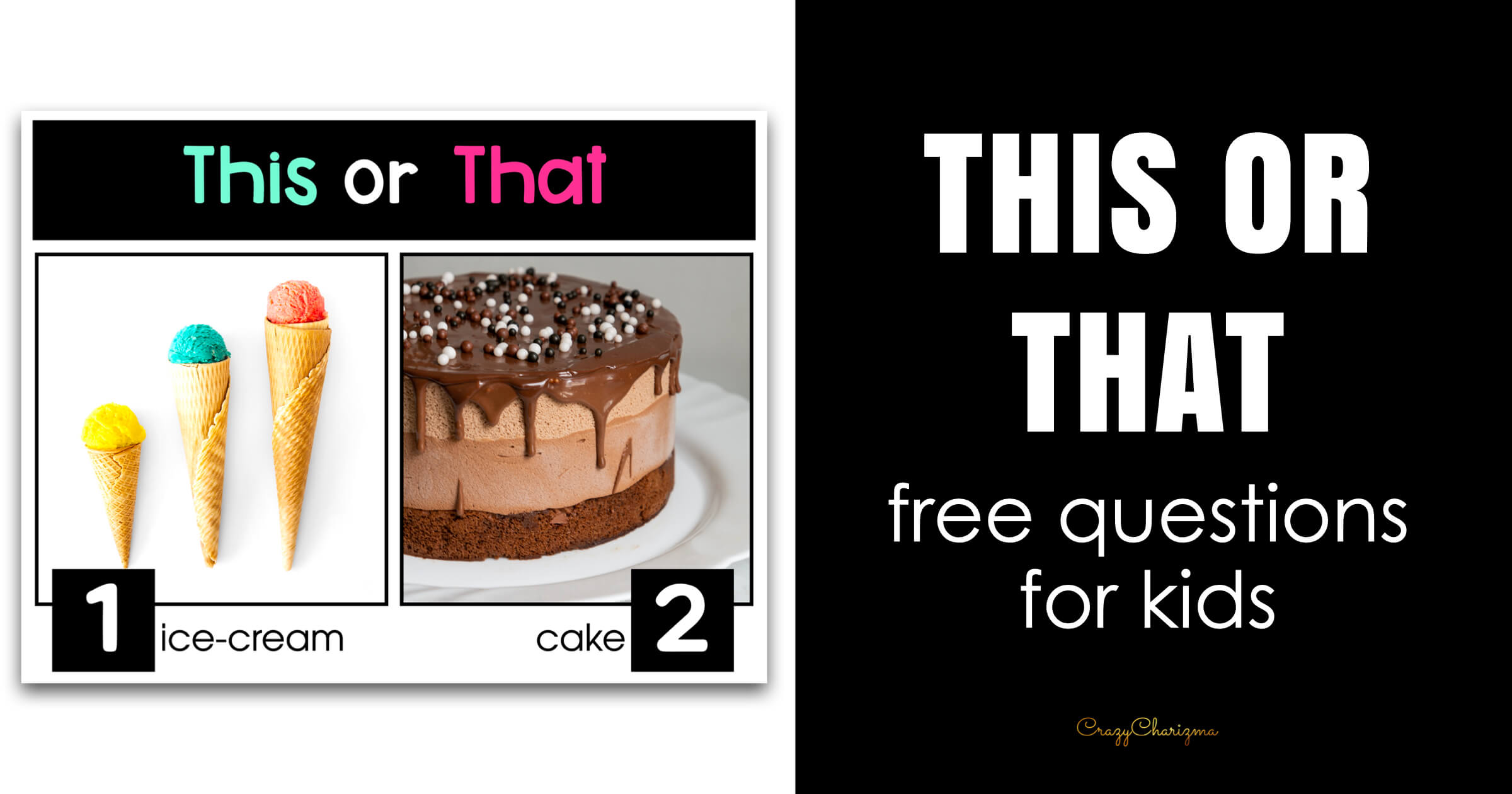
🟠 Day 4–5: Try a very simple center rotation with familiar materials:
- ✏️ Center 1: Editable Name Practice (again, now with markers or crayons)
- 🔢 Center 2: Counting Objects Clipcards
- 📚 Center 3: Revisit a read-aloud with a drawing or retelling activity
Everything I use in this first week — from the name tracing pages to the “This or That” slides and counting clipcards — is organized and ready inside the Google Drive Folder: Back to School Edition. No digging, no formatting, just print (or assign) and go.
Easy Morning Work & Centers That Practically Run Themselves
The first week of kindergarten is not the time for fancy centers. Keep it simple. Keep it quiet. Keep it predictable.
When students walk in each morning, they need something they can do independently while you manage all the things (arrival, backpacks, notes from home, nervous faces). I stick to one or two soft-start activities for the whole week — no rotations, no choices yet. We’re just practicing.
Morning Work Ideas:
- Editable Name Practice (yes, use the same sheet all week with different tools — pencils, crayons, markers)
- Simple tracing pages — lines, shapes, numbers
- Build Your Name with Mini Erasers — students “trace” their name using small objects on a laminated name mat
Later in the Week: Introduce Simple Centers
Once we’ve practiced a few materials whole group, I’ll set up 2–3 very simple centers:
- ✂️ Name Tracing again (repeated is great!)
- 🔢 Counting Objects Clipcards
- 🎨 Playdough or a book-based draw and retell activity
We’re not going for academic magic here — we’re just getting used to how centers work: where to go, what to do, how to clean up, how to rotate. That’s the win.
All the activities I use that first week — name practice, clipcards, fine motor printables — are tucked into my Google Drive Folder: Back to School Edition. Editable, no prep, and ready when you are.
And if it takes 30 minutes to clean up? That’s normal. If you only get through one center? Also normal. Over-plan, model everything, and give yourself (and your students) lots of space to figure it out.
Build Community from Day One (Without Making It Complicated)
Yes, you’re teaching routines. Yes, you’re teaching procedures. But what really matters? Helping kids feel like they belong.
The first few weeks of kindergarten can feel overwhelming — for you and for them. New room, new rules, new adults, new everything. What helps is creating a space that feels safe, warm, and predictable.
How to Start Building That Community:
- Greet every student at the door. Let them know you’re glad they’re here.
- Use their names often — not just for attendance, but in conversations and transitions.
- Keep comfort items on hand. A stuffed animal or squishy keychain can go a long way for a nervous kiddo (and you won’t mind if it doesn’t come back).
- Start simple class traditions. A morning song. A silly cheer. A movement break you repeat daily. That rhythm becomes their safety net.
I love using books as conversation starters. Choose stories about feelings, kindness, or starting school. Talk about them. Let students share.
(Need a few titles? I’ve got a post with my favorite First Day of School Books for K–2 teachers.)
And finally — talk about your classroom as a community. Use that word. What kind of class do we want to be? What helps people feel happy here? Make an anchor chart together. Let them draw or share. Come back to it often.
You’ve Got This — and I’ve Got You
The first week of kindergarten doesn’t have to be perfect. It just needs to be intentional.
Focus on calm routines, repeat the basics, build connection, and give yourself (and your kids) lots of grace. They’ll learn. You’ll find your rhythm. And by the end of the week, you’ll look back and realize: they’re getting it.
Want to make your planning easier?
Everything I mentioned — editable name practice, counting clipcards, simple routines, and back-to-school printables — is inside my Google Drive Folder: Back to School Edition. Over 3,000 pages, organized and ready to go, so you can focus on your kids (not your copier).
Grab the folder here and start your year with less stress and more calm.

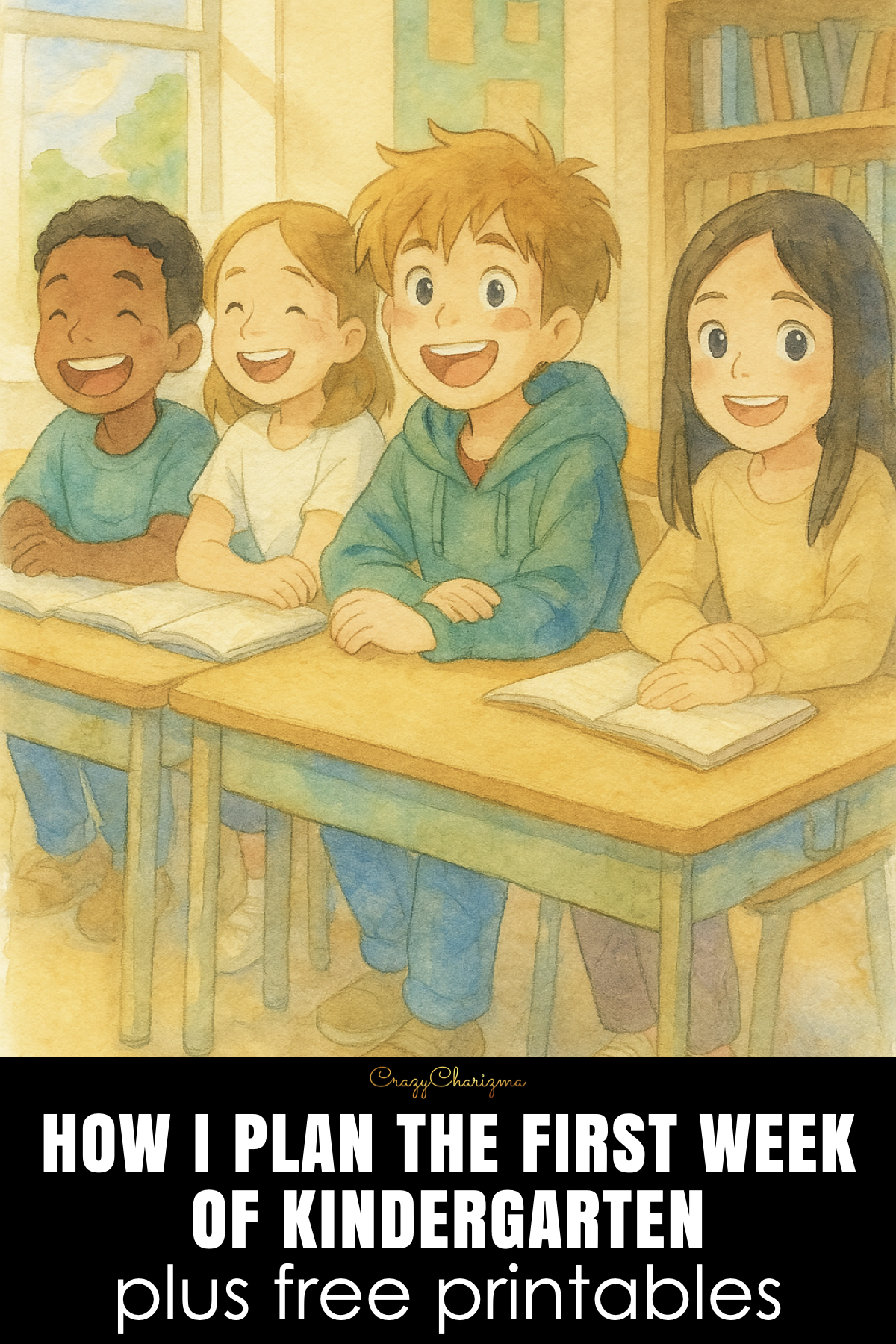
Please, spread the love. Pin this or share.
